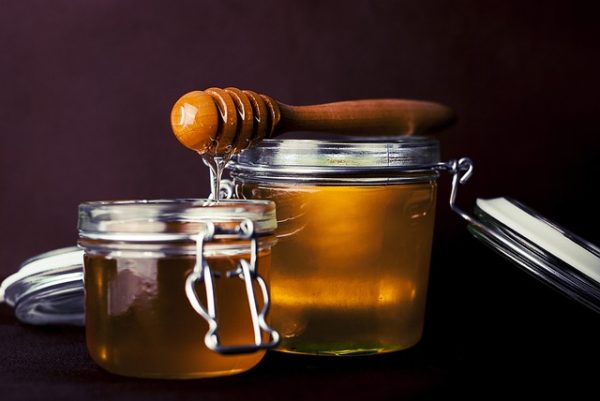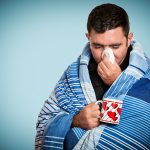Did you know that when 3,000-year-old honey was discovered in King Tut’s tomb in 1922, the honey was still good?
Honey is one of those rare foods that never spoil. This has to do with a combination of an acidic PH and low water content that creates an environment that kills off pretty much any bacteria trying to grow in it.
At the same time, raw honey has a high level of antimicrobial activity. It’s loaded with phenolic compounds that act as powerful antioxidants. And, since ancient times, it has been used medicinally to treat wounds, coughs, skin disorders, eye diseases, gastrointestinal disorders, heart palpitations and many other health conditions.
I still remember the first time I used honey in a medical setting. I was training at one of the John Hopkins Hospital affiliates up in Baltimore. We had a morbidly obese patient who had bowel surgery. It was nearly impossible to close the wound site because of the excess visceral adipose tissue. It just wouldn’t close. And then it became chronically infected.
We had done everything we possibly could, and had read up on scientific studies on honey that showed it prevented the growth of bacteria. So we began to put honey on the wound.
About four week later, it finally healed up and closed properly.
If I wasn’t completely sold on honey as an antibacterial prior to this event, I certainly was afterward.
In fact, years later, I even created my own natural immune booster using honey as one of the main ingredients.
Honey: More Than Just an Antimicrobial
Whenever I had a tickle in my throat or felt like I was coming down with a cold or flu, I would put some organic sliced lemons in a jar. Then, I would add huge chunks of sliced ginger and garlic. Finally, I would fill it with solid, raw, organic honey (not the filtered or pastured liquid kind).
I would mix it all together and let it sit for a while until it liquified, and then take some of it. This turned out to be a tonic that did its job every time. I even used it on my daughter while she was growing up, and she never really got sick.
But honey’s claim to fame doesn’t stop at being an antimicrobial agent.
Researchers at the University of Toronto recently performed an analysis of 18 controlled trials involving honey. The average honey intake in the trials was 40 grams – or about two tablespoons – of honey daily for eight weeks.
What the team discovered is that honey improves key measures of cardiometabolic health. This includes reduced blood sugar levels, a better cholesterol profile, lower triglycerides and lower levels of an enzyme associated with fatty liver disease.
Since honey is high in sugar, this may sound counterintuitive. But you have to remember that all sugars are not created equal.
Raw honey contains several amino acids, vitamins, minerals and enzymes. And nearly all natural honeys contain flavonoids, phenolic acids and other compounds that work synergistically to provide an antioxidant effect.
This differs greatly from processed sugar, which possesses absolutely zero nutritional value.
Similarly, the ultra-processed honey found on the shelves of your supermarket is devoid of nutrients and has no medicinal value.
Specifically, honey must be raw to provide beneficial health effects. Honey from a single flower source performs better than honey from multiple sources. And the darker the honey is, the more effective it is.
How Sweet It Is…
Remember, honey is a sugar. So you don’t want to add a few tablespoons of it to your daily diet without cutting sugar elsewhere.
That being said, the best way to use honey is to use it as a replacement for table sugar, artificial sweeteners and syrups.
Ensure that the label says that the honey is raw and organic. You can also tell a lot from just looking at the honey. The clearer it is, the more processed it is. The lighter the color, the less medicinal value it will have.
Then, use in moderation.
SOURCES:
Samarghandian S, Farkhondeh T, Samini F. Honey and Health: A Review of Recent Clinical Research. Pharmacognosy Res. 2017 Apr-Jun;9(2):121-127.
Eteraf-Oskouei T, Najafi M. Traditional and modern uses of natural honey in human diseases: a review. Iran J Basic Med Sci. 2013 Jun;16(6):731-42.
Sweet: Honey Reduces Cardiometabolic Risks, U of T Study Shows. University of Toronto. News Release. Nov 2022.
Ahmed A, Tul-Noor Z, Lee D, Bajwah S, Ahmed Z, Zafar S, Syeda M, Jamil F, Qureshi F, Zia F, Baig R, Ahmed S, Tayyiba M, Ahmad S, Ramdath D, Tsao R, Cui S, Kendall CWC, de Souza RJ, Khan TA, Sievenpiper JL. Effect of honey on cardiometabolic risk factors: a systematic review and meta-analysis. Nutr Rev. 2023 Jun 9;81(7):758-774.



